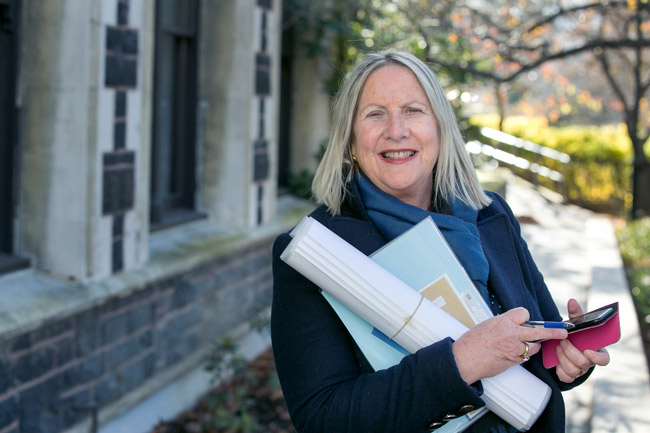Eye Research Otago undertakes vital research for older people who experience visual impairment, identifying any current inequities, and ultimately improving long-term health outcomes.
Donate to Eye Research Otago
DonateSafeguarding vision
Vision is fundamental to virtually every aspect of life, influencing how we navigate our surroundings, interact with others, and engage in activities essential to our well-being. As such, preserving vision is paramount for maintaining independence, productivity, and quality of life. Ophthalmology plays a vital role in safeguarding vision by diagnosing, treating, and preventing a wide range of eye conditions and diseases. At Eye Research Otago (ERO), we continue our research to improve the outcomes for the community. Early detection and intervention are crucial in preserving vision and preventing vision loss, making regular eye examinations an essential aspect of preventive healthcare.
Understanding vision problems in Aotearoa New Zealand
Eye Research Otago has several lines of research:
Vision loss implications in daily life: 20 percent of people aged 65 years and over have vision loss, affecting more than 150,000 people in New Zealand. Vision loss can severely impact independence and connection with the environment, causing a poorer quality of life and health and a higher risk of dementia. We are studying the effects of vision loss through a big database analysis of hundreds of thousands of patients, including Māori and Pasifika. Moreover, we are researching mental function and vision.
Retina research focused on new drugs: Macular degeneration is a very common disease affecting around 200 million people worldwide and 100,000 in Aotearoa New Zealand. Macular degeneration affects the central part of the vision, which is responsible for sharp, central vision. Despite substantial progress in the last few years, current treatments have limited visual outcomes. We are working on new mechanisms of action.
Innovation: New diagnostic and treatment management options for glaucoma and retina diseases to improve community outcomes.
Patients who underwent cataract surgery had a 30 percent lower risk of developing dementia over ten years compared to those who did not.
Eye Research Otago researchers
"Ophthalmology holds immense significance due to its pivotal role in preserving vision, safeguarding eye health, and enhancing overall well-being." Dr Francesc March.
Dr Francesc March is a consultant eye surgeon at the Dunedin Hospital. Dr March is interested in how vision loss and retinal diseases occur in the population and how medical services can be better organised to deliver the best clinical care.
Associate Professor Tania Slatter is Academic Leader, Course Director Medical Laboratory Science, Histology, for Otago Micro and Nanoscale Imaging (OMNI). Dr Slatter is interested in how we can modulate retina degeneration and inflammatory processes.
Dr Xaviour Walker is a geriatrician and medical internist at the Dunedin Hospital. Dr Walker is interested in healthy ageing, geriatrics, tropical medicine, Pacific Island health and workforce, and medical education.
The impact of your gift
Thanks to donors like you, we will have the ability to undertake vital research into older people who experience visual impairment, identify any current inequities, and ultimately improve their long-term health outcomes.
To discuss your support of Eye Research Otago, please contact:

Kerry Buchan
Development Manager Health Sciences
Division of Health Sciences
University of Otago
Mob +64 27 4242 097
Email kerry.buchan@otago.ac.nz
Every donation is important and makes a difference.
Donate to Eye Research Otago